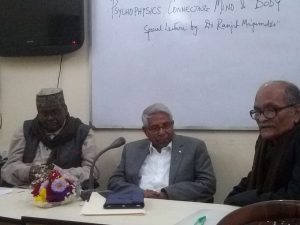Annual General Meeting of DANA for 2019 shall be held at DANA premises at Jodhpur Park on 30th June 2019 at 12 noon. Lunch will be provided after the meeting.
All members are requested to contact DANA Reception.
Annual General Meeting of DANA for 2019 shall be held at DANA premises at Jodhpur Park on 30th June 2019 at 12 noon. Lunch will be provided after the meeting.
All members are requested to contact DANA Reception.



 Daylong workshop on ‘Parenting’ was organised at DANA today with about 25 participants. Mohit Ranadip, Rita Roy, Dr Gautam Bandyopadgyay and Dr Amit Chakraborty spoke on various aspects of Parenting.
Daylong workshop on ‘Parenting’ was organised at DANA today with about 25 participants. Mohit Ranadip, Rita Roy, Dr Gautam Bandyopadgyay and Dr Amit Chakraborty spoke on various aspects of Parenting.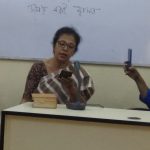
Daylong workshop on Parenting will be organised at DANA on Sunday, 26th May, 2019. The key speakers will be Mohit Ranadip, Psychiatric Social Worker and Mental Health Activist and Ms Rita Roy, Psycologist and Counsellor. Dr Gautam Bandyopadhyay and Dr Amit Chakraborty will take part in the Panel Discussion in the second half of the Workshop.
All are welcome.
Workshop on Social Victimisation was organised at DANA on 28th Febbruary 2019. Ms Bandana Mukhopadhyay, Ms Subhra Banerjee Pal and Ms Pallabi Mukhopahyay spoke on various psychological issue connected to Social Victimisation. Dr Bula Bhatra, eminent Sociologist attended the Workshop and spoke on Sexual Victimization.
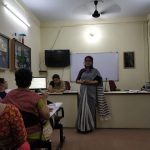
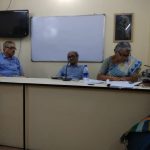
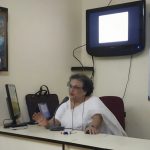
Daylong workshop on ‘Social Victimization’ will be organised at DANA on Sunday, 28th April 2019.
Speakers: Ms Bandana Mukhopadhyay, Psychologist, Ms Subhra Banerjee Pal, Psychologist, Ms Pallabi Mukhopadhyay, Psychologist and Dr Bula Bhadra, Sociologist.
All are welcome.
VIOLENCE AGAINST WOMEN: MYTH & REALITY
There are many myths and misconceptions about sexual assault and abuse in our society – most of which blame the victim/survivor. Myths prevent survivors from getting the help they need, and rarely hold the perpetrator accountable for his/her actions. These ideas are often based on systems of oppression such as sexism, racism, heterosexism or other forms of power.
Have you heard any of these dangerous examples?
Learn the Facts
MYTH: Most sexual assaults occur by deranged men who jump out from behind the bushes to assault women.
FACT: The majority of survivors (up to 85% in some studies) indicate that the person who assaulted them was someone they knew, such as a boyfriend, friend, family member, acquaintance, or service provider.
Why do we think the myth is true? It’s easier to believe that a stranger, and not someone you know and trust, would hurt you this way. Stranger assault is also more widely reported in the media and to the police, which perpetuates this idea.
MYTH: If a woman is wearing revealing or sexy clothes, she wants sex.
FACT: Every woman has the right to wear what she wants, and to choose her sexual partner. The idea that someone “asked for it” because of what she was wearing blames the victim instead of the perpetrator. You have to ask if someone wants to have sex.
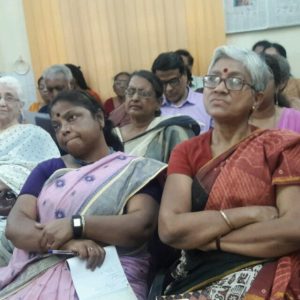
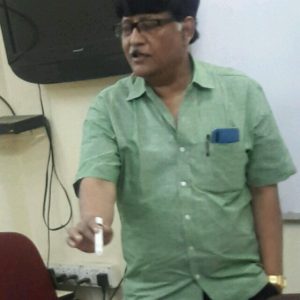 Daylong workshop on Classification of Mental Desease was held at DANA on 31st March 2019. The Key Speaker was Prof Dr Gautam Bandyopadhyay, Neuropsychiatrist. More than 30 Professionals and Students attended t
Daylong workshop on Classification of Mental Desease was held at DANA on 31st March 2019. The Key Speaker was Prof Dr Gautam Bandyopadhyay, Neuropsychiatrist. More than 30 Professionals and Students attended t
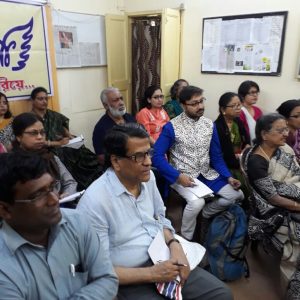
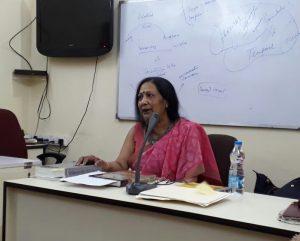
Daylong Workshop on Dielectic Behaviour Therapy (DBT) was organised at DANA on 17th February 2017. The main Speaker was Dr Sudipa Desmukh, Clinical Psychologist from USA who has specialised in counselling for Substance Abuse / Drug Addiction.
Daylong workshop on DIALECTICAL BEHAVIOUR THERAPY used for treatment of Borderline Personal Disorder, Mood Disorder, Addiction etc.
OVERVIEW ON D.B.T.
Speaker: Dr Sudipta Desmukh, Clinical Psychologist, USA.
On Sunday, 17th Feb, 2019.
DANA along with Association for Improvement of Mathematics Teaching AIMT organized a special lecture on ‘Psychophysics connecting Mind & Body’ by Dr Ranjit Majumder, Emeritus Professor, West Virginia University, USA on 30th December 2018 at 5 pm. Prof Dilip Simha, Ex Vice Chancellor of Viswa Bharati Univèrsity and Prof Amal Mullick, President of DANA were present on the dais.
